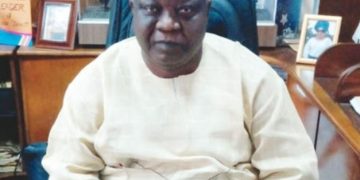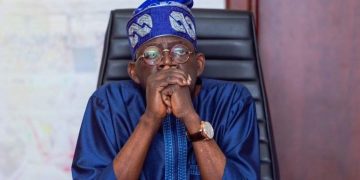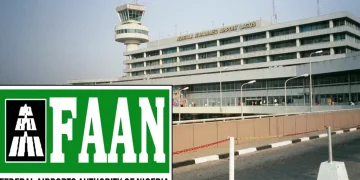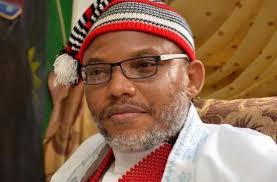Special Counsel to Nnamdi Kanu, detained leader of the Indigenous People of Biafra (IPOB), Aloy Ejimakor, has decried the continued injustice meted to the IPOB leader, while raising the alarm over the refusal of a Federal High Court in Abuja to issue a production warrant needed to ensure Kanu’s presence in court for the settlement of records in an appeal filed before he was convicted and sentenced to life imprisonment.
Mr Kanu was sentenced on November 20, 2025, but he is expected to appear in court on November 28, 2025, for settlement of records of appeal he filed prior to his sentencing.
But in a post via X on Wednesday, Ejimakor wrote: “This is a Summons to Mazi Nnamdi Kanu to be present on November 28 at Federal High Court in Abuja for settlement of record for the appeal he filed before the November 20 judgment. A production warrant is required for the Sokoto Prison to bring him to Abuja but the Court refused to issue it.”
The lawyer expressed shock that despite issuing the summons, the court declined to grant the production warrant, a mandatory order that authorizes prison authorities to convey an inmate from detention to the courtroom.
Without it, Ejimakor warned, Kanu cannot be physically present for the court proceedings, potentially undermining his right to a fair hearing and due process.
Ejimakor had raised concerns that transferring Kanu to a correctional facility in Sokoto, hundreds of kilometres from Abuja, posed a serious threat to his right and ability to file and pursue an appeal in his case.
Speaking on Channels Television’s Morning Brief programme on Monday, November 24, Ejimakor warned that Kanu’s constitutional rights under Section 36 of the 1999 Constitution of the Federal Republic of Nigeria were now at risk.
Ejimakor stressed that the appeal process required immediate and detailed actions that were impossible to execute without close access to the relevant courts and legal support.
Ejimakor said the legal community and observers were stunned to learn that Kanu was moved from Abuja to a prison in Sokoto shortly after his sentencing.
He questioned how Kanu could meet the strict procedural demands required to initiate an appeal.
Ejimakor argued that several facilities closer to Abuja, such as Suleja and Keffi, would have better preserved Kanu’s access to legal assistance and family members.
He warned that Kanu’s ability to pursue an appeal was being complicated by the current location of his imprisonment.
Kanu was convicted on seven terrorism-related counts on Thursday, November 20, 2025, by Justice James Omotosho of the Federal High Court in Abuja after years of trial disruptions, detention, and legal disputes between his defence team and the Nigerian authorities.
Before his conviction and sentencing, Kanu was held in the Department of State Services (DSS) detention since June 2021, after his controversial arrest and extradition to Nigeria from Kenya under circumstances that have been widely criticized by local and international human rights groups and courts.
In October 2022, the Court of Appeal discharged Kanu of all charges and ruled that his extraordinary rendition was unlawful.
However, the Nigerian Government appealed the decision, securing a stay of execution that kept him in custody.





































